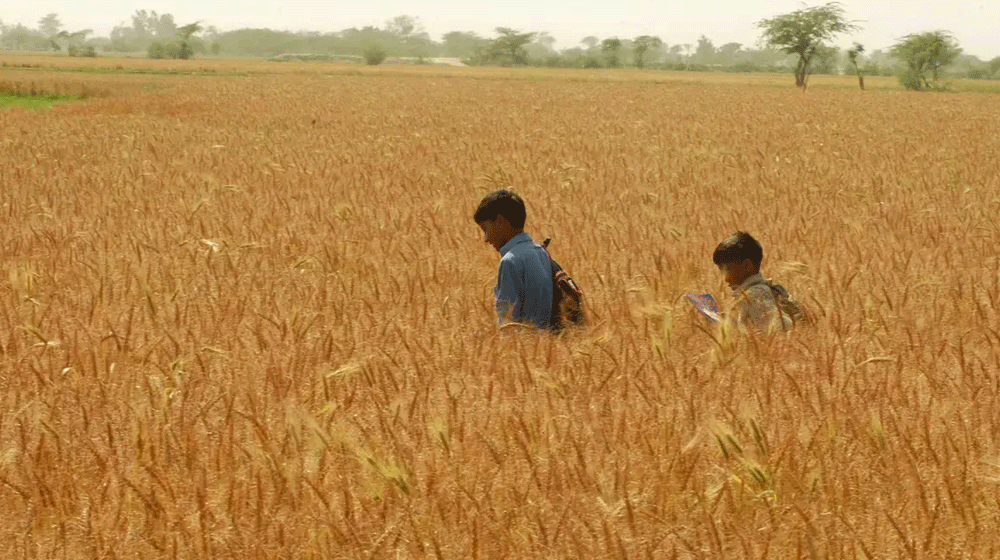Pakistan is likely to have a positive impact of the drought-and-disease-tolerant wheat seed it has sown this season on its crop yield.
The wheat review committee expressed this hope in its meeting chaired by Federal Minister of National Food Security and Research Syed Fakhar Imam on Thursday. The Minister and his provincial counterparts and provincial representatives monitored the status of the crop in view of the targets set for sowing and production in different parts of the country. On the special invitation, Fehmida Mirza, Minister for Inter-Provincial Coordination also attended the meeting.
The committee was informed that Khyber Pakhtunkhwa, Balochistan and Sindh had achieved the wheat sowing targets, while Punjab also hoped it would achieve the target. A representative of Punjab briefed the panel that the province would achieve its previous sowing target, however, it would not be able to achieve its enhanced target.
All the provinces asserted that the assigned production targets would be met. However, they expressed concerns over the diammonium phosphate (DAP) and urea availability and prices.
Fakhar Imam said that the purpose of the meeting was to ensure monitoring of progress so as to meet the assigned wheat crop targets. He said the wheat was the most important crop and any issues arising should be addressed on time. He said the current government put extraordinary focus on the agriculture sector, so regular monitoring was being ensured through weekly meetings.
On this occasion, Secretary Agriculture Punjab discussed the revision of the minimum support price (MSP) of wheat to support achieving the wheat procurement target. The proposed procurement target of Punjab stands at 3.5 million tonnes, KPK and Balochistan at 100,000 tonnes, and Sindh between 1.2-1.4 million tonnes (to be finalized by the Sindh cabinet).
The Meteorological Department briefed the committee on the weather forecasts for the months of February and March. It said during February the rainfall spell would remain below normal, whereas in March, it would be above normal, especially in Central Punjab.
An Indus River System Authority representative clarified that irrigation water shortage which had been estimated at 28 percent at the sowing time of crop was improved due to the recent spell of rainfall. Now, the shortfall for the current Rabi season is calculated at 20 percent. It was a consensus that certified seed was adequately available. However, high prices and unavailability of urea were considered as a prevailing challenge. The high price of DAP has also resulted in its overall lower usage.
Fakhar said few parameters had been established to ensure that wheat crop sowing was effectively monitored. He said these parameters included, but were not limited to, wheat sowing area and a completion percentage of the assigned target, sowing method (Drilling or Broadcasting), quantum of fertilizer used during sowing practices (DAP and urea), fertilizer offtake, certified seeds used, seed varieties used during sowing (old or new rust tolerant wheat varieties), availability status of herbicides and fertilizer availability and pricing status etc.
The Chair assured all the participants that necessary steps would be immediately taken to ensure that supply of items needed for good production. He praised the efforts of Punjab in ensuring that the farmers sow wheat seeds timely.

























